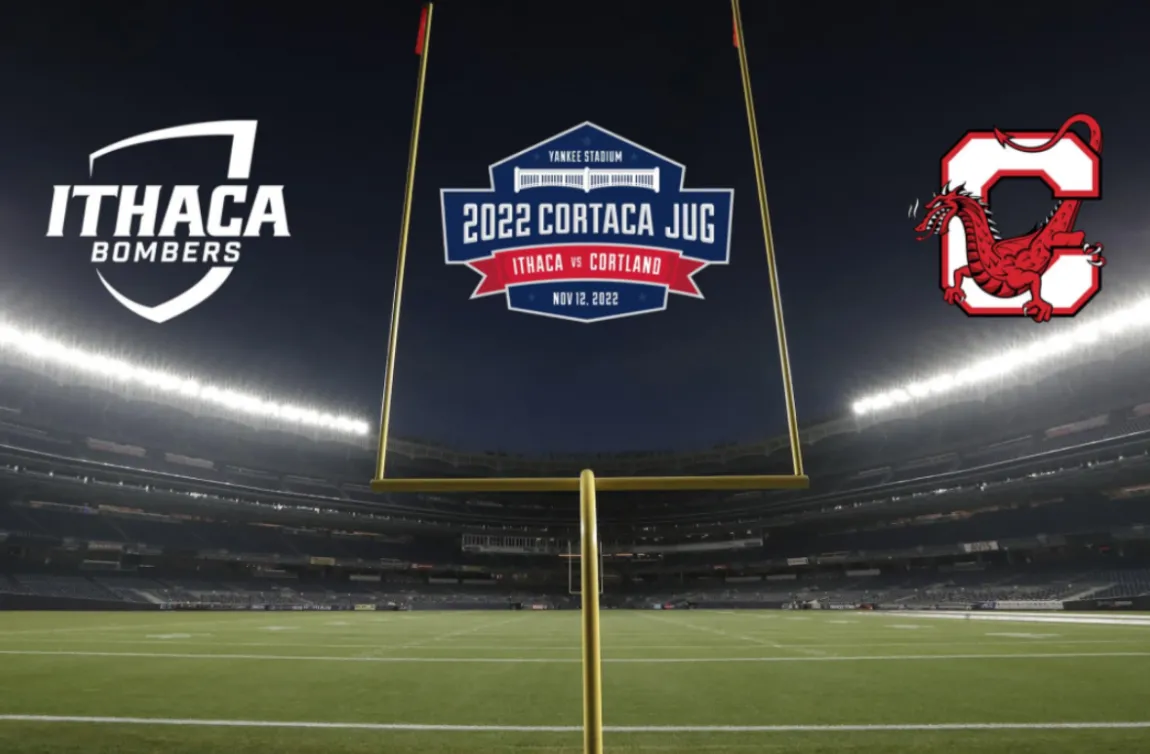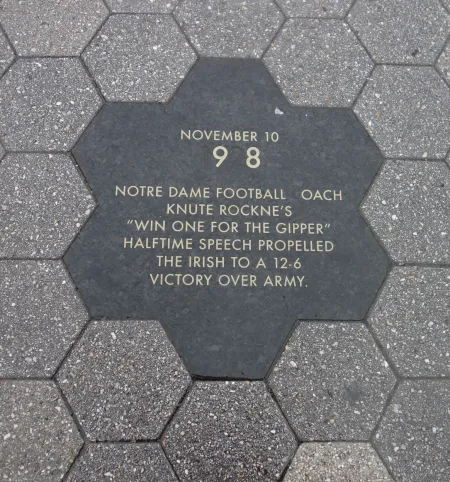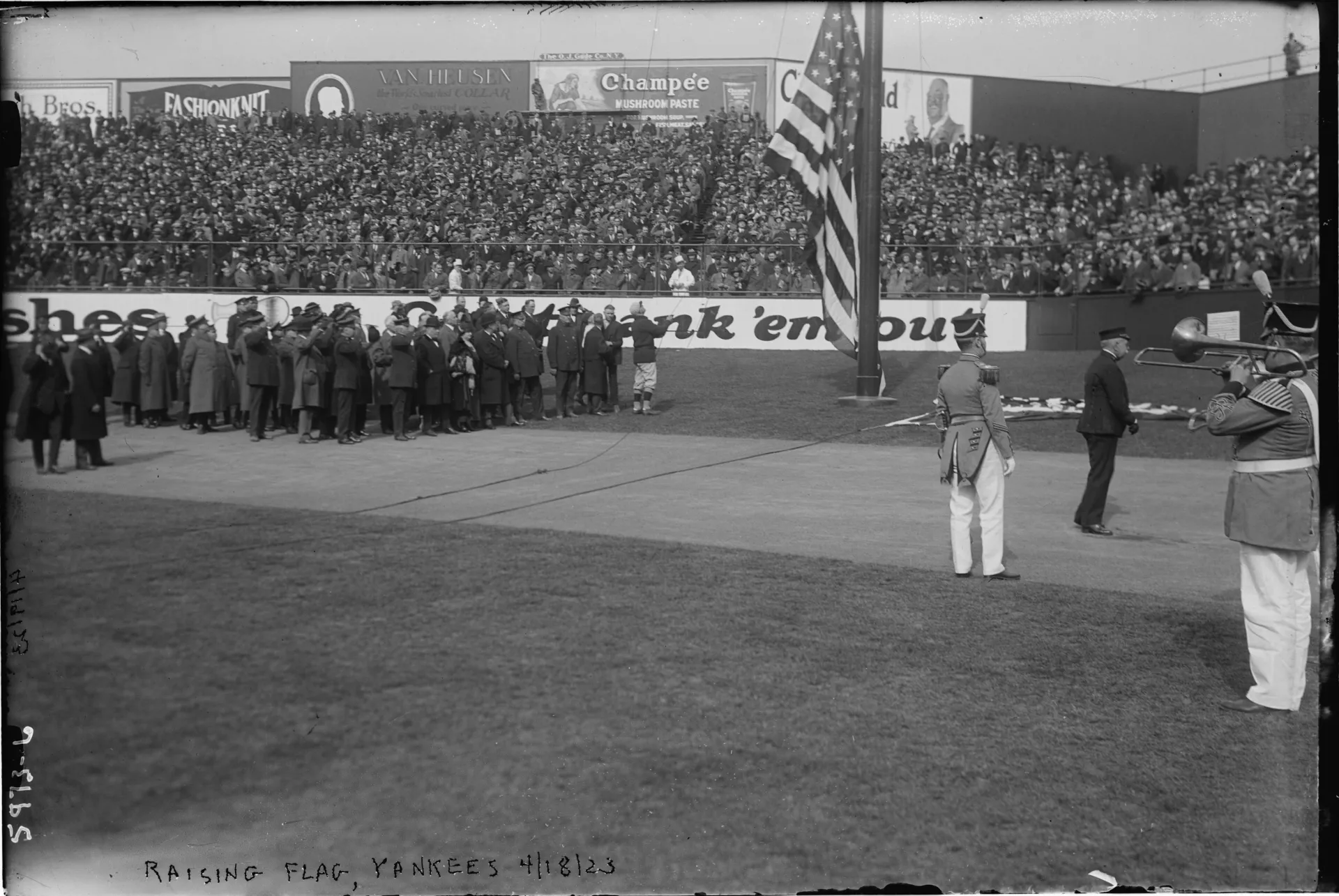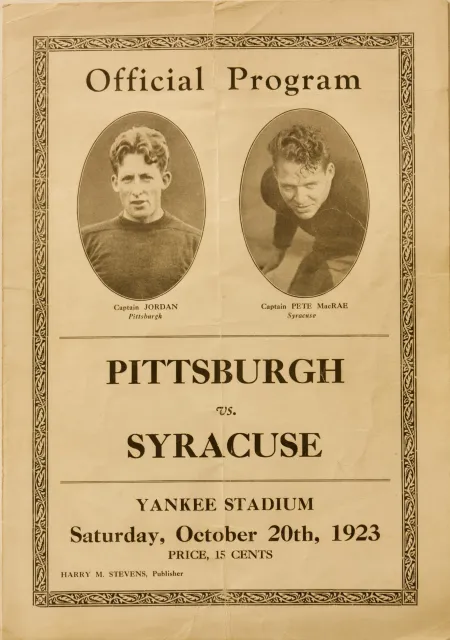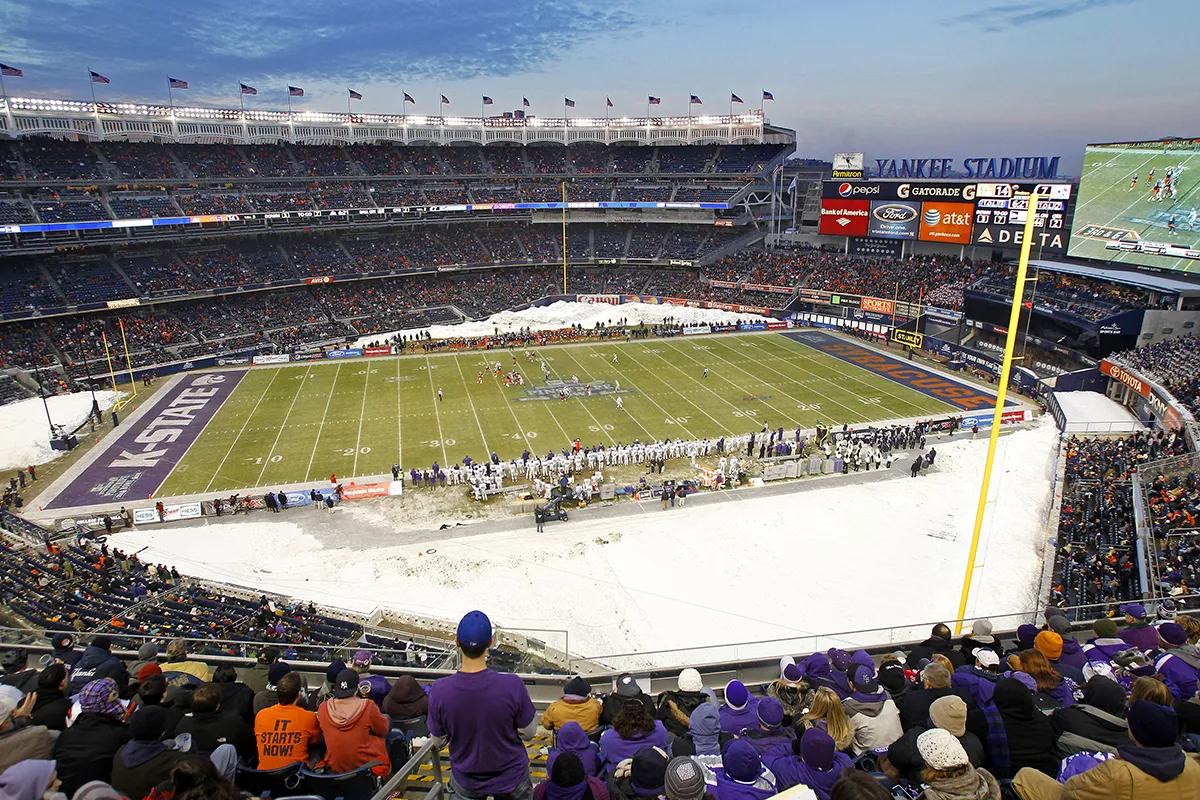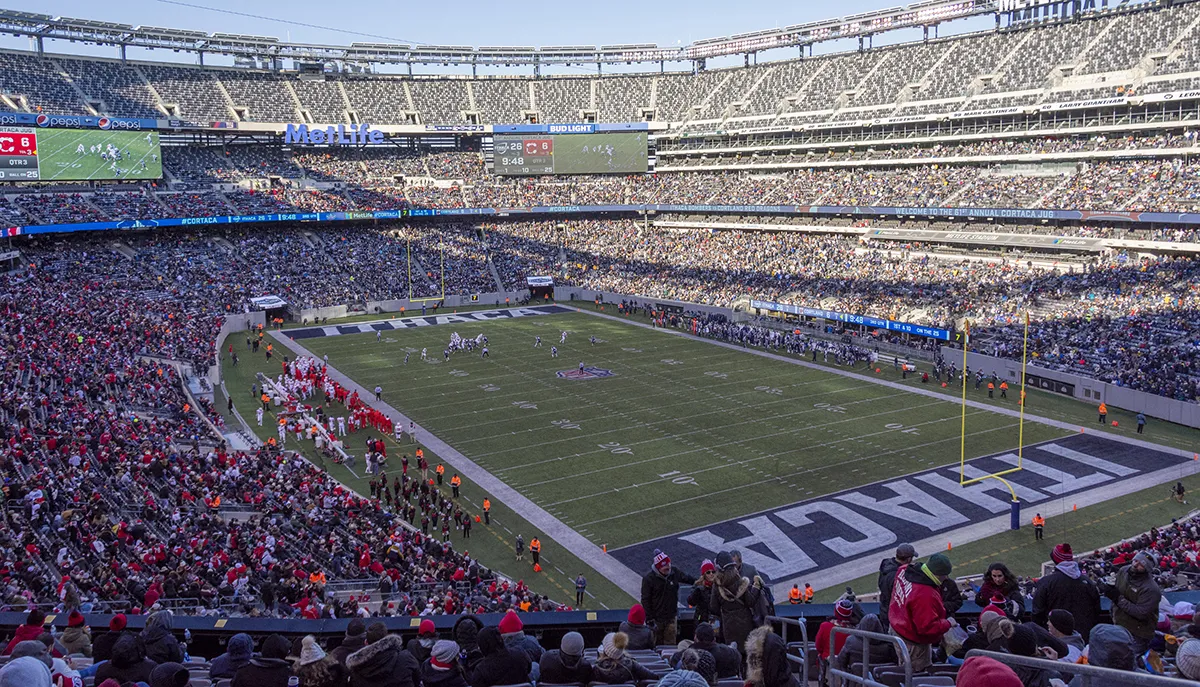From November 10-13, 2022, Ithaca College will be hosting a weekend-long “IC in the City” experience in New York City for alumni and current students, faculty, and staff. The centerpiece of this event, the 63rd annual Cortaca Jug football game between Ithaca College and SUNY Cortland, will take place on November 12 at Yankee Stadium. To highlight this amazing opportunity, we will be publishing a year-long series titled “Countdown to Cortaca: Bombers in the Bronx,” highlighting the entire weekend.
In the second installment, we’re highlighting Yankee Stadium’s storied history hosting non-baseball events, in particular college football.
